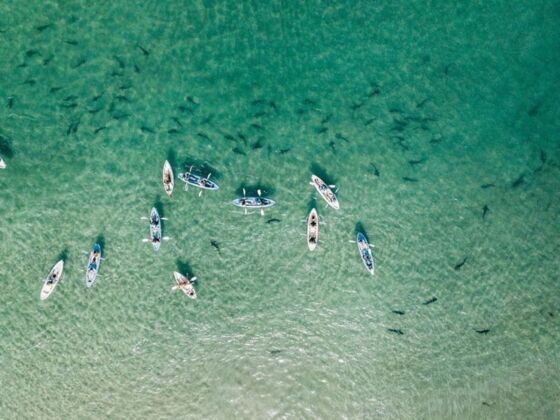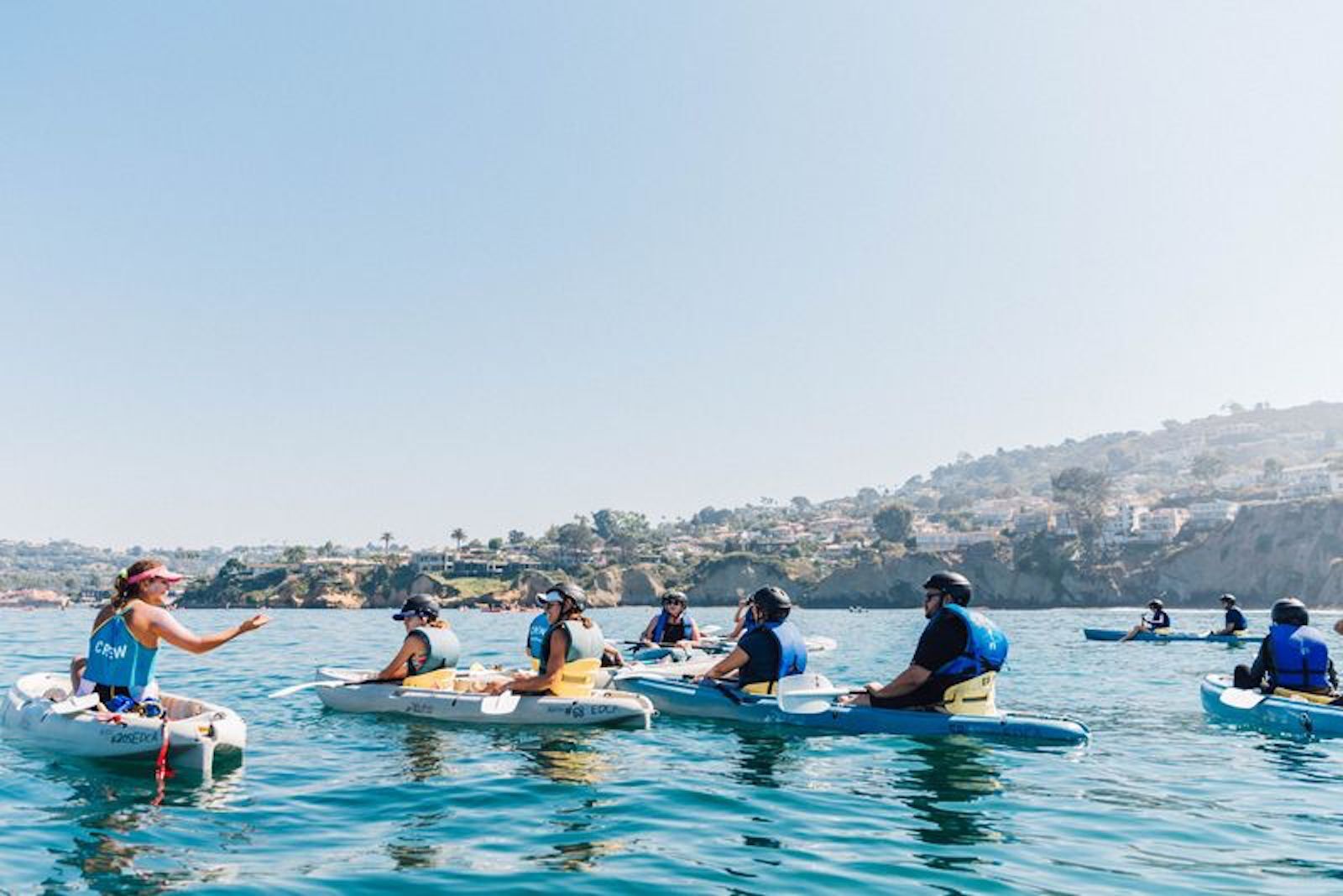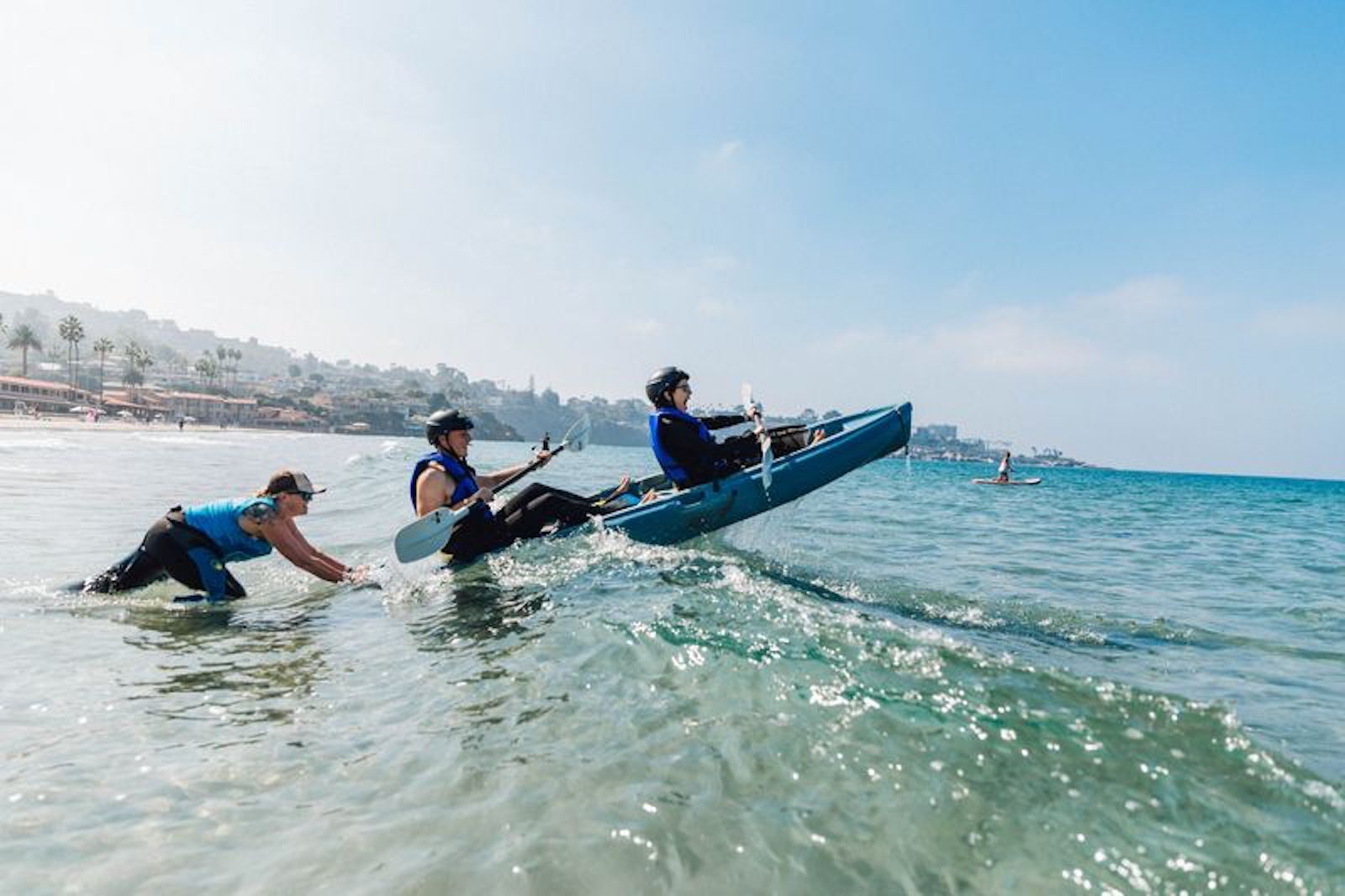The La Jolla Ecological Reserve, also called the San Diego-La Jolla Underwater Park, encapsulates over 6,000 acres of critical ocean habitat off the Southern California coast. The area, ringed by the cragged rocks of La Jolla Cove and the sun-drenched La Jolla Shores Beach, draws visitors year-round to its waters to witness some of the most abundant sea-life popilations in San Diego County. Since November 2010, one local tour operator has provided guests a way to experience this rich marine environment while contributing to its ongoing protection – and giving underserved youth the chance to experience the same.


By Kayaking With This California Company, You’re Giving Underserved Kids Access to the Beach
To avoid harmful boat emissions, Everyday California’s excursions take guests paddling from shore to swim amongst dolphins, sea lions, and other marine life while respecting and preserving their habitats. The company’s kayaking, paddleboarding, and snorkeling tours explore the La Jolla Ecological Reserve, home to one of the highest concentrations of sea life on the West Coast. Here they’re able to view dolphins, shovel nose guitar fish, Garibaldi, and the occasional sea turtle swimming around the reserve’s two artificial reefs.
“What makes this area so special is that the marine protected area has been around for so long that the marine life is thriving, the kelp forest is thriving, the beaches are beautiful,” Everyday California founder and CEO Chris Lynch told Matador. “When you look around the world, it’s so important to see what happens to our ecosystem when you actually protect it.
Immediately after launching the business, Lynch knew the company could make a big impact in keeping this area special.
Everyday California partnered with 1% For The Planet to boost its impact

Photo courtesy Everyday California
“We started as a couple of beach bums with an old pickup truck and some old kayaks and westsuits,” Lynch says. “We had a storage unit that we would drive to and drop our equipment down on the beach.”
Of course, getting on the water has long been part of La Jolla’s culture. What separates these tours from others, however, is the brand’s regenerative and community-building focus. Part of the revenue from each sale goes towards environmental and community efforts, including providing surfing and kayaking lessons to kids who otherwise couldn’t afford them. Through the experience, the kids not only get to surf but also learn to be stewards of the environment both at the beach and where they live.
While catching momentum with its ocean-based tours and kids programs, Lynch and his team knew they wanted to further their positive impact on the reserve’s ecosystem. The company brings in enough revenue to employ around 100 people in the summer and distributes its gear to some 150 retail locations. 75,000 people per year tour with the company or visit its flagship store in La Jolla. This level of market saturation meant Everyday California could contribute a small portion of its revenue to a viable charity and have a big impact. Lynch chose 1% For The Planet after reading reading Yvon Choinard’s book, Let My People Go Surfing.
“Seeing Patagonia do business how they have was really inspiring,” Lynch says. “We have aspirations of being a big apparel brand. Seeing what Patagonia has done leading the way with environmental stewardship, we want to do business like that. We are working towards that goal.”

Photo courtesy Everyday California
Through the partnership, Lynch and the company provide funding to non-profits including Green Wave and Urban Surf 4 Kids, which teaches surfing to kids who grow up within proximity to the ocean, but rarely get to access the ocean due to economic circumstances or lack of transportation. The company has donated more than $100,000 to date.
“It’s crazy, a lot of these kids live 20 or 30 minutes from the beach in San Diego, but they never go to the beach,” Lynch says. “If you’re in the system, you’re not allowed to go anywhere unsupervised. That’s been a huge impact for us is that they get to learn how to surf, but we also get to teach them about the marine protected environment, about the animals, about how littering 20 minutes from here is going to end up in the ocean.”
The same eco-first mindset plays out in Everyday California’s physical products. Lynch and his team began making reef-safe mineral sunscreen shortly after launching tours to ensure guests, and eventually the general beachgoing public, could access the water without leaving behind harmful chemicals. The line now includes sun- and sand-resistant shirts and hoodies, swimsuits, hats, and beach gear, all crafted to make as little impact as possible and with recycled material when they can.
“What’s important to us about sustainability is that this is why we started the company,” Lynch says. “We wouldn’t have the business success that we’ve had without that, and we always stress this in the training with our tour guides, instructors, and staff. Our goal is to teach all of our customers why this area is so special and why we need to protect it.”
In addition, Lynch and his team emphasize small action items that every beachgoer can do to help protect the areas they love.
“The most important thing is to pick up any trash that you see,” he says. “We’re always making a point of this. If you’re out on the water, leave it better than when you got there.”